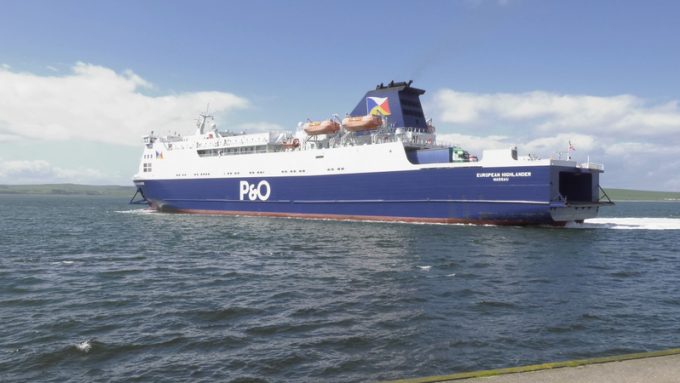Congestion fears as box lines plan to dodge EU carbon tax with UK first-call
The UK appears to have become the hot EU ETS-dodging destination du jour, with many ...
GM: RAISING THE ROOF GGM: IN FULL THROTTLE GZIM: MAERSK BOOST KNIN: READ-ACROSSMAERSK: NOT ENOUGHMAERSK: GUIDANCE UPGRADEZIM: ROLLERCOASTERCAT: HEAVY DUTYMAERSK: CATCHING UP PG: DESTOCKING PATTERNSPG: HEALTH CHECKWTC: THE FALLGXO: DEFENSIVE FWRD: RALLYING ON TAKEOVER TALKODFL: STEADY YIELDVW: NEW MODEL NEEDEDWTC: TAKING PROFIT
GM: RAISING THE ROOF GGM: IN FULL THROTTLE GZIM: MAERSK BOOST KNIN: READ-ACROSSMAERSK: NOT ENOUGHMAERSK: GUIDANCE UPGRADEZIM: ROLLERCOASTERCAT: HEAVY DUTYMAERSK: CATCHING UP PG: DESTOCKING PATTERNSPG: HEALTH CHECKWTC: THE FALLGXO: DEFENSIVE FWRD: RALLYING ON TAKEOVER TALKODFL: STEADY YIELDVW: NEW MODEL NEEDEDWTC: TAKING PROFIT

P&O’s recent withdrawal from the port of Liverpool fits the pattern of a wider, “organised retreat” from the UK for parent company DP World, one expert has suggested.
In a recent report, MDS Transmodal highlighted that P&O had cut its share of the capacity significantly in the Great Britain-Ireland trade, from 27% to 18%, with the remaining operators picking up the slack. And P&O’s capacity share in the North Sea between the UK and Europe fell from 17% to just 9%.
But the group is also set to pull out of the Liverpool-Dublin trade, leaving competitors Stena Line, Irish Ferries and Seatruck Ferries on GB-Irish routes.
However, its recent actions closely resemble the pattern of a more conventional winding-down, Mike Garratt, chairman of MDS Transmodal, told The Loadstar.
Referencing a UK Financial Times article in which he was quoted, Mr Garratt said P&O Ferries “…lost out to DFDS, Stena Line. I’d have hardly characterised [as reported by the FT] that these are ‘low-cost operators”.
However, P&O Ferries has recently invested £250m in two hybrid ships – but they will operate between the UK and France, rather than on the Irish Sea.
Late last month, The Loadstar reported on P&O’s withdrawal from the Liverpool-Dublin ro-pax trade, after its berth became unavailable at the Gladstone Dock Terminal, with no suitable alternative offered, according to P&O, leaving Seatruck as the remaining freight operator on the route. P&O said it was “saddened” by what it called a “forced withdrawal” from the port, despite having “explored all options to continue sailing on this route.”
Mr Garratt disputed this and said: “It is not as though they [P&O] are entitled to be there as sitting tenants forever. Especially considering the value of the proportion of land they sat on. UK ports can charge whatever the market will bear.”
Although Brexit has been blamed by observers for a decline in Irish Sea ro-pax and ro-ro trade – with the republic preferring to trade with the European mainland via its south coast ports of Cork and Rosslare – there is insufficient evidence that Brexit is solely responsible, Mr Garratt said, highlighting a 2018 £150m investment by P&O in a ro-ro terminal at Tilbury2, well after the Brexit vote.
He said: “It seems to be an organised retreat. The central corridor of Heysham and Liverpool to Dublin and Belfast is very competitive, which is why I wasn’t really surprised that P&O failed there. There was a time when they were clearly investing in the UK, putting new capacity on the Thames and new vessels to go with it. So if they changed their mind, then it was some time in the past four years.”
P&O Ferries faced extraordinary backlash in March of 2022, when it fired 800 workers over Zoom, breaking UK employment law, citing competition from low-cost competitors as the reason. And the RMT union was similarly unimpressed with the withdrawal from Liverpool, general secretary Mick Lynch saying the company “cannot be trusted to operate economically vital ro-pax ferry services”.
Comment on this article